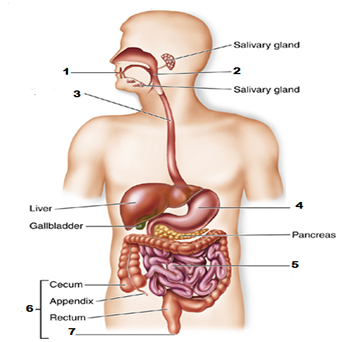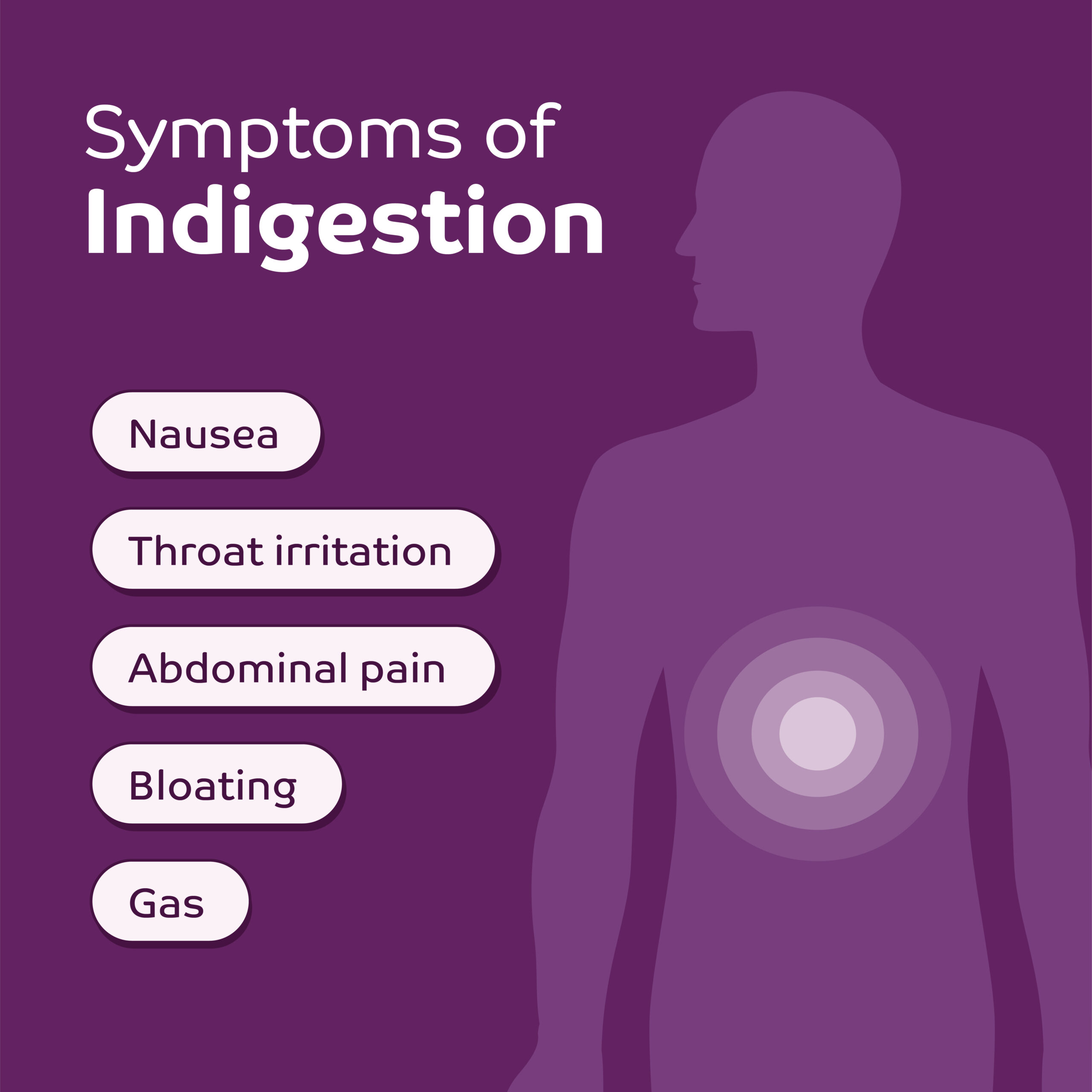Indigestion
Overview
Indigestion — also called dyspepsia or an upset stomach — is discomfort in your upper abdomen. Indigestion describes certain symptoms, such as belly pain and a feeling of fullness soon after you start eating, rather than a specific disease. Indigestion can also be a symptom of other digestive disorders.

Although indigestion is common, each person may experience indigestion in a slightly different way. Symptoms of indigestion may be felt occasionally or as often as daily.
Indigestion may often be relieved with lifestyle changes and medicines.

Digestive system
The major organs in your digestive system are the liver, stomach, gallbladder, colon and small intestine.
Symptoms
If you have indigestion, you may have:

- Early fullness during a meal. You haven’t eaten much of your meal, but you already feel full and may not be able to finish eating.
- Uncomfortable fullness after a meal. The feeling of fullness lasts longer than it should.
- Discomfort in the upper abdomen. You feel a mild to severe pain in the area between the bottom of your breastbone and your bellybutton.
- Burning in the upper abdomen. You feel an uncomfortable heat or burning sensation between the bottom of your breastbone and your bellybutton.
- Bloating in the upper abdomen. You feel an uncomfortable sensation of tightness in your upper abdomen.
- Nausea. You feel as if you want to vomit.
Less frequent symptoms include vomiting and belching.
Sometimes people with indigestion also experience heartburn. Heartburn is a pain or burning feeling in the center of your chest that may radiate into your neck or back during or after eating.
When to see a doctor
Mild indigestion is usually nothing to worry about. Consult your health care provider if discomfort lasts for more than two weeks.
Contact your provider right away if pain is severe or accompanied by:
- Unintentional weight loss or loss of appetite.
- Repeated vomiting or vomiting with blood.
- Black, tarry stools.
- Trouble swallowing that gets worse.
- Fatigue or weakness, which may be signs of anemia.
Seek immediate medical attention if you have:
- Shortness of breath, sweating or chest pain radiating to the jaw, neck or arm.
- Chest pain when you’re active or stressed.
Diagnosis
Your health care provider is likely to start with a health history and a thorough physical exam. Those evaluations may be enough if your indigestion is mild and you’re not experiencing certain symptoms, such as weight loss and repeated vomiting.
But if your indigestion began suddenly, and you are experiencing severe symptoms or are older than age 55, your provider may recommend:
- Laboratory tests, to check for anemia or other metabolic disorders.
- Breath and stool tests, to check for Helicobacter pylori (H. pylori), the bacterium associated with peptic ulcers, which can cause indigestion.
- Endoscopy, to check for issues in your upper digestive tract, particularly in older people with symptoms that won’t go away. A tissue sample, called a biopsy, may be taken for analysis.
- Imaging tests (X-ray or CT scan), to check for intestinal obstruction or another issue.




